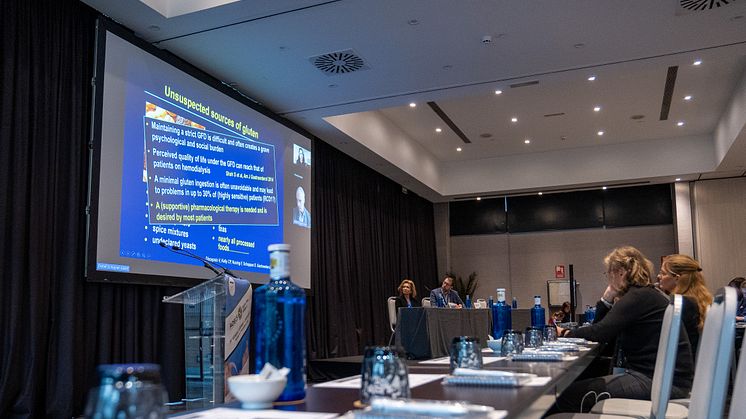
Press release -
AOECS Scientific Research eBook - New Research Reveals Barriers to Gluten-Free Diet Adherence for Coeliacs
Three recent studies published from Europe, the USA, and Jordan in the AOECS Scientific Book 2024 highlight the challenges patients face and the need for strategies to improve adherence. This underscores the central role that a gluten-free diet plays in the management of coeliac disease.
AOECS Scientific Book 2024
For the third consecutive year, AOECS (Association of European Coeliac Societies) is publishing its Scientific Research eBook. It features new research and innovations in the field of coeliac disease. A notable trend in this year’s collection of research articles is that several focus on the gluten-free diet.
Key Findings from the Studies
A social disease
The gluten-free diet affects children's quality of life in multiple ways. While it can improve well-being by alleviating symptoms, a study shows that it may also lead to social exclusion and a lack of information, ultimately resulting in a lower overall quality of life. Conducted in Spain, the study calls for the development of social strategies to improve inclusion, especially during the first year of a gluten-free diet.
Food insecurity brings down the quality of life for coeliacs
A study in Jordan found that gender, marital status, and income influence the quality of life of coeliac patients and that many adults with coeliac disease experience food insecurity, which also affects adherence to a gluten-free diet and, consequently, their quality of life.
Better adherence to gluten-free diet among biopsy-examined patients
A study in Germany, Italy, Spain, and the USA found that adherence to a gluten-free diet was higher among patients with a biopsy-confirmed diagnosis than those without. The study also revealed that biopsy-confirmed diagnosis of coeliac disease is more common in Europe than in the USA.
A Broader Approach to Supporting Coeliac Patients
Being diagnosed with coeliac disease presents a complex challenge. These studies highlight the need for broader and more innovative approaches to support coeliac patients beyond simply advising them to follow a gluten-free diet. Potential useful tools may include:
- Digital platforms for education and information about a gluten-free diet.
- Mobile applications to help patients identify gluten-free products and restaurants.
- Support groups to reduce social isolation.
- Financial support programs to improve access to gluten-free foods, particularly for those with food insecurity.
Do you want to know more?
If you want to learn more about these studies, you can read summaries of them in our Scientific eBook, available on our website. There, you will also find many other interesting studies on coeliac disease.
Related links
Topics
Categories
The Association of European Coeliac Societies (AOECS) is an independent, non-profit umbrella organisation of over 40 member and affiliated National Coeliac Societies. Together with our members, we represent people affected by coeliac disease or dermatitis herpetiformis across Europe and beyond.
We are involved in several international initiatives to raise awareness of coeliac disease, gluten free diets, and encourage research into coeliac disease early diagnosis, patient’s quality of life and cure.





